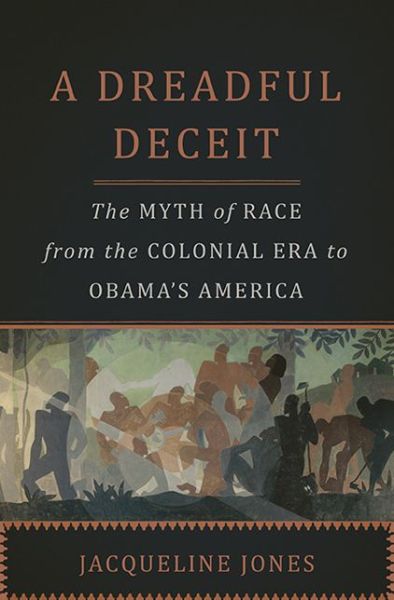“Dreadful Deceit”: Race is a myth
Salon
Sunday, 2013-12-15
Laura Miller, Staff Writer
A historian argues that one of the defining elements of American culture is merely a “social fiction”
Jacqueline Jones’ provocative new history, “Dreadful Deceit: The Myth of Race From the Colonial Era to Obama’s America,” contains a startling sentence on its 265th page. It comes after Jones quotes Simon Owens, the last of five African-Americans whose life stories she describes in the book. Owens — an auto worker, labor activist and writer who died in 1983 — stated, “I understood as a Negro first, in the South, the North, in the union, in the NAACP, in the C.P. [Communist Party] and in the S.W.P [Socialist Workers Party].” Jones adds, “Because generations of white people had defined him and all other blacks first and foremost as ‘Negroes,’ he had no alternative but to acknowledge — or, rather, react to — that spurious identity.”
That racial identities are “spurious” is the foundational argument of this fascinating book. Race is a cultural invention, rather than a biological fact (on this scientists widely agree), and Jones, a history professor at the University of Texas and recipient of a MacArthur Fellowship, wants to show how pernicious and persistent this falsity is. In the book’s epilogue, she points to an article from the 2012 edition of the New York Times titled “How Well You Sleep May Hinge on Race,” based on a study showing that living in high-crime neighborhood or having chronic conditions like diabetes or hypertension can cause insomnia. But, as Jones observes, these are problems deriving from poverty, not race, and so the article “blatantly conflated socioeconomic status with the idea of race.”
Of the five people whose life stories are told in “Dreadful Deceit,” the first is essentially voiceless: an enslaved man named Antonio, abducted from his homeland in Africa and murdered while being “corrected” by a colonial landowner in 17th-century Chesapeake. As Jones relates, Antonio’s race “had no practical meaning” to the man who purported to own him, Symon Overzee. Describing in well-researched detail the economic and political milieu of the time, she argues that what created Antonio’s vulnerability to Overzee was not his skin color or any other physical trait but his uprootedness, “without a tribe or a nation-state to protect and defend him in the Atlantic world.”…
…None of the life stories in the book supports this argument more forcefully than that of Richard W. White, a Civil War veteran elected to the office of clerk of the Chatham County Superior Court in Georgia. One of his opponents in the election filed suit against White, charging that he was ineligible to hold office in Georgia because he was “colored.” White, who was relatively new in town and “from unknown parts and of unknown lineage,” appeared to be “white.” The evidence marshaled to prove that White was not white consisted, as the judge freely admitted, of “the reputation of the person in his community, that is what he says of himself — what others say of him — his associates and his general reputation.” In other words, Jones underlines, a man’s race in this community “would be a matter not of ethnicity or heritage or appearance or biology. It would be, purely and simply, a social fiction — one without any appreciable basis in physical reality.”…
Read the entire review here.

